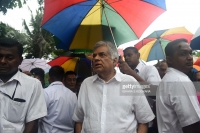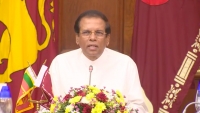Transparency should be the norm, and secrecy the exception, emphasised Dr Harsha de Silva, Deputy-Foreign Minister at a meeting on the Right to Information.
{module lolc}
He was speaking at a consultation organised by the International Centre for Ethnic Studies (ICES) and the Commonwealth Human Rights Initiative (CHRI) held at the ICES Auditorium on Thursday 3rd December and Friday 4th December 2015.
The Consultation came a day after the Sri Lankan Cabinet of Ministers gave its stamp of approval to a draft law on the Right to Information (RTI). Enacting a RTI law was part of the 100 day programme of the current Government. However, the law did not get passed during the 100 day period.
The Deputy-Minister emphasised that this time there is political will to make the RTI law a reality, and that a democratic government cannot survive without accountability. This is the second time in 12 years that the Cabinet has approved a draft RTI law, on the previous occasion Parliament was dissolved before the law could be passed.
The Deputy-Minister commented on two challenges to address: ensuring the legislation adequately balances the exemptions against the duty to disclose information; and secondly, the need to create an implementation framework that is effective. He noted that the exemptions to the disclosure of information should be minimised and be specific. The Deputy-Minister urged civil society and the media to bring the topic under public scrutiny and make it a subject of public discussion.
The Deputy-Minister noted the role that technology plays in implementing the right to information and the importance of using innovative technology in facilitating open government. Sri Lanka has joined the Open Government Partnership (OGP), which requires the government to prepare a two-year action plan for promoting open government. Public access to information and creating spaces for citizen participation in decision making processes at all levels of government are two major pillars of this worldwide movement, which currently has more than 60 members. Sri Lanka is the only country in South Asia that has joined the OGP, despite the absence of an existing RTI law.
Dr Jayampathy Wickramaratne, MP and Chairperson of the RTI Bill Drafting Committee, also participating in the RTI consultation, emphasised that the exemptions in the draft Bill must be tested against the constitutional guarantee of the right to information contained in Article 14(A) inserted by the recent 19th Amendment. He encouraged civil society to raises issues of inconsistency with the Constitution with the Government and also in the Supreme Court. Dr Wickramaratne also stressed the importance of taking the draft to non-English audiences for meaningful and widespread consultation.












